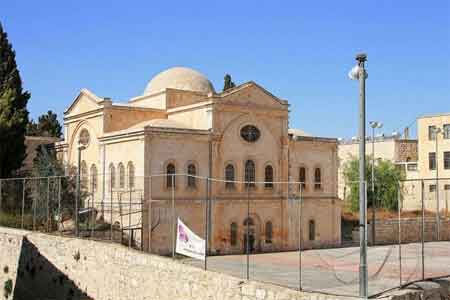By Thomas Helm
JERUSALEM (The National) — Jerusalem’s Old City, which has been deserted since the Gaza War, just had its most significant explosion of anger since the recent conflict erupted.
The Old City is no stranger to tension. It is arguably the main cauldron of the Israel-Palestine conflict.
What made Sunday’s eruption different was where it took place: a normally quiet car park in the Armenian Quarter, tucked away in the south-east corner of the Old City.
On the face of it, an increasingly heated quarrel in this corner of Jerusalem is about property development. But it cuts to the heart of the agony so many communities in Israel and Palestine have experienced in more than 100 years of conflict.
The current war, the Armenians say, has focused global attention on the unbearable violence in Israel on October 7 during Hamas’ surprise attack, and the subsequent massive Israeli bombardment of Gaza.










